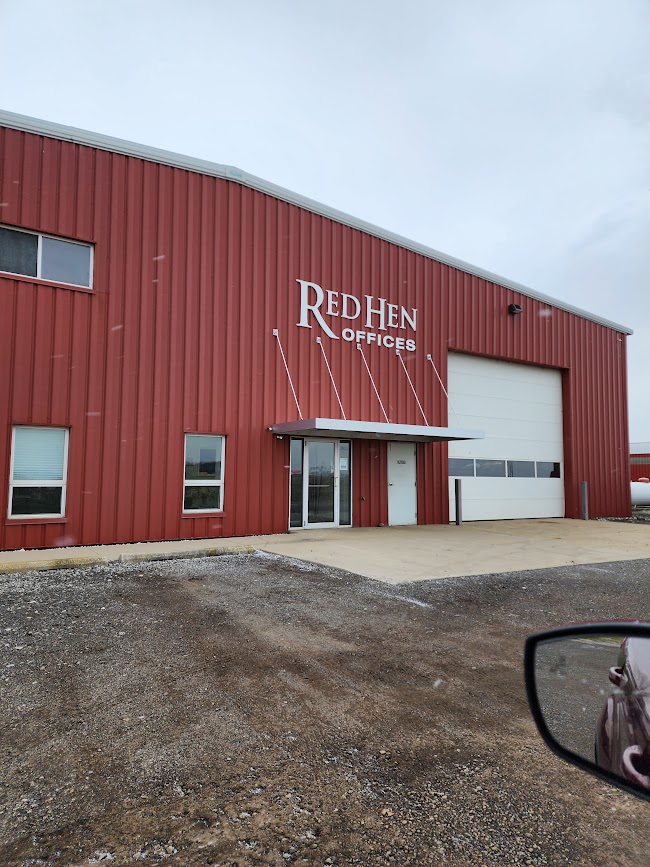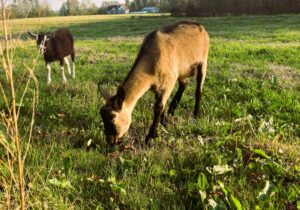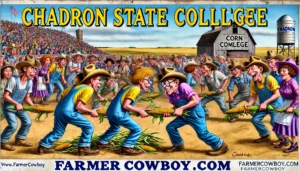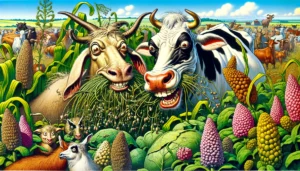
20240322 102602.jpg
Ever wondered how those lush carpets of green find their way into our yards, parks, and sports fields? Red Hen Turf Farm is one way!
Grass, a ubiquitous presence in our residential landscapes, often goes unnoticed in everyday life. We take it for granted even though it creates the perfect place for a picnic or a game of backyard football. But despite its unassuming facade, there’s an entire sector of agriculture dedicated to the craft of growing quality turf for installation in modern landscaping.
I had the opportunity to ride along with Max Niespodziany, Senior Financial Officer with Farm Credit Mid-America, as he delivered a patronage check to Red Hen Turf Farm. It was my first time on a turf farm!
Red Hen Turf Farm
Max and I met up with Gordon Millar, the owner of Red Hen Turf Farm. It’s a 2,500 acre operation growing sod, tomatoes, seed corn, corn, and soybeans. Located west of South Bend, Indiana, it’s been in business for over 50 years.
Sod is the farm’s star. Gordon, who took the farm over when his parents retired, kindly spent time explaining how sod is grown. It’s actually not all that different from any other crop, except it takes about 18 months for it to mature for harvest. But soil quality, pest control, crop rotation, and fertilizers are all used to produce quality sod. Red Hen Turf Farm then sells the sod regionally.
Gordon even took us out to the field where we saw the harvester in action. As you might imagine, there’s a specific machine used to cut out the sod and roll it up into those nice little bundles you see.
I was curious about how much soil is removed with the sod, and whether it ever has to be replaced. Gordon explained that the harvester only takes a minimal amount of dirt with the grass. So it isn’t really an issue.
Because Red Hen Turf Farm has been around for a while in this area, I had to ask Gordon about some recent developments in the industry. He thinks the biggest issue for agriculture is currently labor. Recent changes to the H2A program have made it harder and more expensive to find workers. Red Hen Turf Farm currently has several employees from South Africa.
We also chatted about the farmland converted into solar panels—the area around Red Hen Turf Farm has a lot of them. Gordon said it’s great for marginal farmland (or, land that doesn’t produce well). And he’s dedicated some lower producing fields for that purpose.
Farm Credit Mid-America’s Patronage Program
Farm Credit Mid-America’s Patronage Program pays back capital to its customer-owners, giving them control and an equitable contribution. This year alone, the Patronage Program is injecting $255 million back into the hands of eligible customers, with a significant portion of $66 million earmarked for farmers in Indiana, including Gordon. These funds aren’t just a token gesture; they support agricultural businesses, empowering them to make critical investments and weather financial challenges. From diversifying their enterprises to purchasing essential supplies such as feed and fertilizer or alleviating debt burdens, the flexibility offered by the patronage checks is invaluable.
The impact of Farm Credit Mid-America’s Patronage Program extends far beyond the current year. Over the past eight years, it has disbursed an impressive $1.25 billion in cash patronage, underlining its commitment to supporting its customer-owners consistently. For farmers facing soaring interest rates and rising costs, these checks help support their operations. And it showcases Farm Credit Mid-America’s dedication to rural communities.
A big thanks to Max and Farm Credit Mid-America for allowing me to ride along! And to Gordon for being a wonderful host!

Source link
2024-04-28 15:38:15
Originally posted 2024-06-01 22:20:52.
Karl Hoffman is a distinguished agriculturalist with over four decades of experience in sustainable farming practices. He holds a Ph.D. in Agronomy from Cornell University and has made significant contributions as a professor at Iowa State University. Hoffman’s groundbreaking research on integrated pest management and soil health has revolutionized modern agriculture. As a respected farm journalist, his column “Field Notes with Karl Hoffman” and his blog “The Modern Farmer” provide insightful, practical advice to a global audience. Hoffman’s work with the USDA and the United Nations FAO has enhanced food security worldwide. His awards include the USDA’s Distinguished Service Award and the World Food Prize, reflecting his profound impact on agriculture and sustainability.









Asmongold vs. Elon Musk — Who knew Tesla’s self-driving tech was meant to make you a pro gamer on the go? Genius move, Elon!